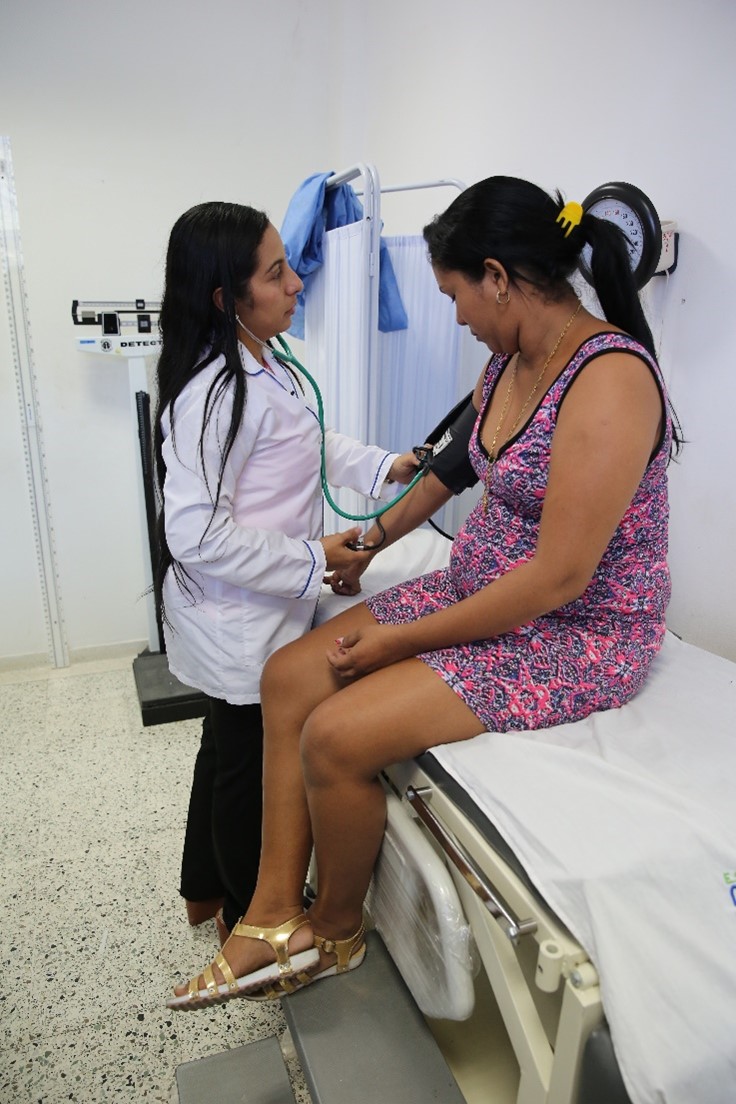Several studies supported by TDR’s Impact Grants for Regional Priorities explored policies and practices related to Zika virus outbreaks. These implementation research studies primarily investigated maternal, sexual and reproductive health topics to improve future public health policies and strategies for an emergency response to the virus.
Zika virus is a member of a mosquito-borne family of viruses known as flaviviruses that cause dengue fever, yellow fever and West Nile virus. Over the past two decades serious outbreaks of Zika virus infection have occurred in Africa, the Americas, South-East Asia and the Western Pacific. Brazil bore the greatest disease burden as a result of the virus during 2015–2016, with more than 200,000 cases of Zika virus infection and 8 600 babies born with malformations.
The TDR-funded studies assessed different aspects of Zika virus outbreaks in six Latin American countries. Highlights from some of the studies are shared below:
Colombia: Pregnant women’s access to health services during the Zika epidemic
- This research found that access to services was delayed during the epidemic, and most of the study participants made out-of-pocket payments to access services that were not provided. The researchers recommend that policy-makers utilize the results to develop and implement public policies that adapt and respond to pregnant women’s priorities and needs.
Colombia: Zika virus infection and family planning
- This research explored how being infected with the Zika virus during pregnancy influenced future family planning. Of 19 women interviewed, eight women identified the pregnancy as unexpected, and two women had undergone permanent sterilization. Women had mixed views about decision-making related to family planning, and views on abortion in a future pregnancy were influenced by religious beliefs.
Mexico: Rapidly distinguishing Zika virus from dengue fever
- This research team evaluated a non-commercial enzyme-linked immunosorbent assay test (ELISA) to accurately detect the anti-Zika virus immunoglobulins which distinguish Zika virus infection from dengue fever. The research team commented that this testing approach can benefit public health services in countries with a high incidence of both dengue and Zika viruses by helping to accurately differentiate one from the other.
The Impact Grants for Regional Priorities support researchers and public health practitioners as part of TDR’s collaboration with all WHO regional offices. The objective is to produce implementation research findings that can help build national strategies and action plans for better control and treatment of infectious diseases of poverty.
RESARCH PROJECTS ON ZIKA FUNDED BY TDR’S IMPACT GRANTS FOR REGIONAL PRIORITIES
Prevalence study in pregnant women and neonates investigating the role of Zika virus infection in the epidemic of newborns with microcephaly in Salvador-Bahia
Isadora Cristina de Siqueira
Instituto Gonçalo Moniz-Fiocruz
BRAZIL
Contraceptive practices and reproductive preferences of women in primary care: were there changes after the onset of the Zika virus outbreak in Brazil?
Jussara Rafael Angelo
Fundação Para o Desenvolvimento Científico e Tecnológico em Saúde
BRAZIL
Evaluation of acute ZIKV, DENV and CHIKV infection in transvestites from 12 Brazilian capitals through multitest on the qPCR platform
Leonardo Foti
Instituto
de Biologia Molecular do Paraná (IBMP)
BRAZIL
Knowledge and perceptions related to family planning, concerns about adverse pregnancy outcomes related to Zika virus, and health-seeking behaviour of services among women in Colombia
Berta Restrepo
CES University, Medellin, Colombia (in partnership with the Karolinska Institute, Sweden)
COLOMBIA
Public health policies in emergency situations: the outbreak of Zika virus
Ethel Leonor Noia Maciel
Universidade Federal do Espírito Santo
COLOMBIA
Contraceptive use, prenatal counseling, and abortion in the context of Zika
Javier F Colorado
Red de Salud de Ladera E.S.E.
COLOMBIA
Response of health services in the clinical approach of pregnant women with Zika in two municipalities of Colombia 2015-2017
Joava Alexandra Ocampo Cañas
Universidad de los Andes
COLOMBIA
Spatial distribution and temporal variation of the risk of Zika virus infection in regions of Colombia during the 2015–2016 epidemic
Karen Cecilia Flórez Lozano
Universidad del Norte, Colombia
COLOMBIA
Identification, characterization and local adaptation of policies for the prevention, detection and care of the Zika virus in 3 municipalities of Colombia and its relation with the National Policy on Sexuality, Sexual Rights and Reproductive Rights
Luz Janeth Forero Martinez
Asociación Pro-Bienestar de la Familia Colombiana
– Profamilia
COLOMBIA
Maternal perception and behaviour related to reproductive health in the context of Zika in Jamaica
Kristen Smith
University of the West Indies, Mona
JAMAICA
Field evaluation of a non-commercial ELISA test for the detection of anti-Zika virus IgM in the Yucatan Peninsula
Zaida Bano Mussaret and Ethel Leonor Noia Maciel
Fundacion Mexicana para la salud, Capitulo Peninsular A.C.
MEXICO
Exploring reproductive health decisions under Zika’s threat in Piura-Peru, Peru
Ruth Iguiñiz Romero
Universidad Peruana Cayetano Heredia - Facultad de Salud Pública y Administración
PERU
Critical route of women affected by Zika and the exercise of sexual and reproductive rights in Venezuela
Susana Medinas Salas
Asociación Civil de Planificación Familiar PLAFAM
VENEZUELA
For more information about the Impact Grants for Regional Priorities, please contact Dr Garry Aslanyan



